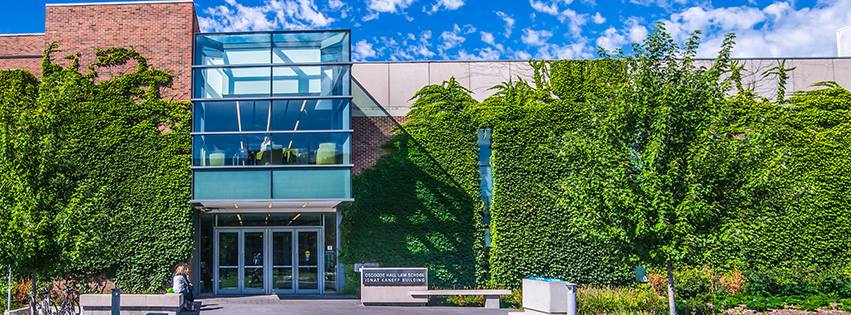Munirul-Haq Raza | News Editor
Featured image: Despite his leave, Lorne Sossin will still remain a part of Osgoode as an academic. | Courtesy of Schulich School of Business
The end of the semester will mark the end of Lorne Sossin’s term as dean of Osgoode Law school. For Sossin, this is a chance to devote more time to research, teaching, and community projects.
While he may be taking administrative leave, he still plans to be very much a part of Osgoode and York, but he says this is also a good opportunity to open up space for new leadership. Sossin says it is “always better to leave before your best before date.”
For Sossin, some of his most memorable public moments came from the convocation of Cindy Blackstock, who received an honorary doctorate, calling up several children of graduating Indigenous students to join her.
Sossin also reflects on private moments “where a student will just share how much the experience of coming to Osgoode has meant to them, how many opportunities it’s going to open up for them, being the first in their family to have the chance to achieve a legal education, and how much gratitude and responsibility they feel because of that.
“Those are definitely the ones I’ll keep with me from the dean’s role.”
Sossin hopes to increase partnerships and community engagement.
He adds: “Even though we’re the biggest law school in the country, we’re built one student at a time.”
Sossin’s focus when he became the dean was for Osgoode “to be an outwardly-focused law school.”
He says: “We take ideas, and what happens in the classroom and library, seriously,” but the central focus for Sossin was on ways of highlighting the issues within everyday life, and how to “be a problem-solving law school that looks outside; it walls both for inspiration for collaboration and partnerships.”
Sossin emphasizes the shift to experiential learning, and doubling the number of legal clinics in Osgoode in the past eight years.
He notes the first experiential requirement for a Juris Doctor program in Canada. He also speaks on concerns for accessibility, reconciliation, and community-oriented research as a point of emphasis.
When asked about law and the future, Sossin says the role of a law school is to be a thought leader to be generating the ideas, frameworks, and law reform that will help shape a data and digitally-driven economy.
Sossin’s next focus is for law schools that are a public entity, to not lose sight of the public interest mandate, and to use law to improve society.
This, for him, means making sure that the emerging data and digital economy is an inclusive one that does not give rise to greater inequalities or greater harm, and to improve society through law—not to create new legal mechanisms that will produce harm.


